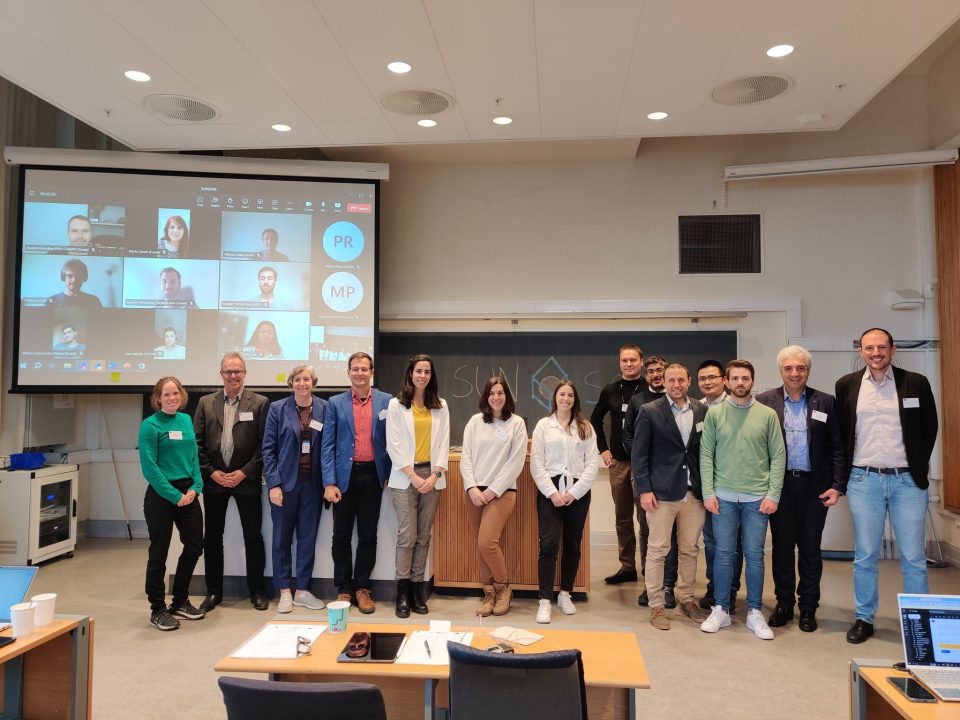Life Cycle Assessment (LCA) in SUNSON Project: Paving the Way to Sustainable Solar Innovations

SUNSON has kicked off
January 17, 2023
The SUNSON project already had the Kick-off Meeting!
February 2, 2023
In the journey towards a sustainable energy future, Life Cycle Assessment (LCA) stands as a powerful tool to measure the environmental, technical, and economic impacts of innovations. SUNSON leverages advanced LCA technologies to ensure that its solar solutions are not only effective but also sustainable, efficient, and socially responsible.
🌍 Why Life Cycle Assessment is Essential
LCA evaluates the environmental footprint of a product across its entire lifecycle—from raw material extraction to end-of-life disposal. This holistic analysis is crucial in identifying resource efficiency, waste minimization, and impact reduction opportunities. For renewable energy innovations like those in the SUNSON project, LCA helps highlight the project’s impact compared to traditional methods and allows us to set a benchmark for future advancements.
🔍 Key Aspects of LCA in the SUNSON Project
- Environmental Impact Assessment
The project prioritizes the environmental sustainability of SUNSON technologies by tracking greenhouse gas (GHG) emissions, resource usage, and other critical environmental indicators. Using SimaPro® software and databases like Ecoinvent, the team will conduct comprehensive studies on SUNSON’s novel solar optics, phase change materials (PCMs), thermal energy storage (TES), and thermophotovoltaic (TPV) generators. - Technical and Economic Feasibility
The techno-economic assessment (Task 6.3) examines energy and production costs, utilizing energy and exergy analyses based on the First and Second Laws of Thermodynamics. This approach helps evaluate efficiencies and irreversibilities, ensuring SUNSON technologies meet economic feasibility goals while optimizing resource flows. - Social Impact Evaluation
Beyond environmental and technical metrics, SUNSON places a high value on social factors through Social Life Cycle Assessment (S-LCA) to measure societal benefits like job creation, safety, and ethics. This task considers the societal acceptance and ethical implications of the SUNSON-Box, ensuring its alignment with community expectations and social well-being. - Holistic Integration of Results
The project brings together insights from environmental, technical, economic, and social analyses to understand the trade-offs and synergies. This activity involves an in-depth integration of these results, balancing economic gains with environmental and social responsibilities. This comprehensive interpretation will ensure that SUNSON’s innovations, such as the SUNSON-Box, align with sustainable standards and regulatory frameworks.
🌱 Benefits for the SUNSON Project
By adopting LCA, SUNSON sets a high standard for clean, reliable, and socially integrated solar energy solutions. This approach enables:
- Reduced environmental impacts, such as lower GHG emissions and optimized resource use.
- Enhanced efficiency, with innovations that reduce volume and avoid hazardous materials.
- Positive societal contributions, creating a technology that resonates with ethical and gender-sensitive considerations.
SUNSON’s commitment to sustainability through LCA not only aims for a clean energy transition but also supports the broader goals of climate action and social responsibility. This ensures that our solar solutions are future-proof, responsible, and beneficial for both people and the planet.


